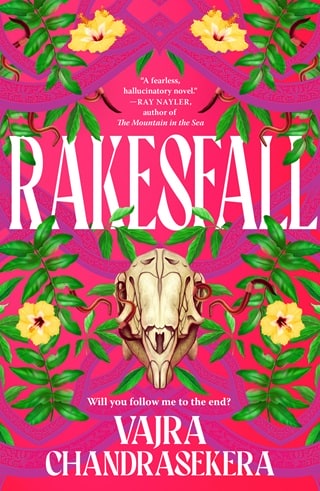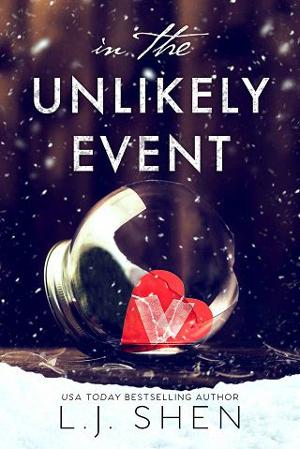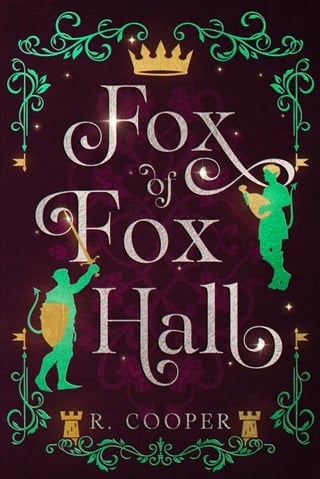Chapter 4 Angels of the Splatter
I chew the leaf and spit out my red days. They splatter. You chew the leaf and spit out your hours of mad redder. They splatter. They chew the leaf and spit out the reddest moments they have ever seen. They splatter. This is a crime scene, chalk me, morn me, eve me. My red life drying on our chin. Your red history a bitter powder crust. Their thin red lines, their spun red webs, their red praxis and deceit.
My eyes are open. The leaf is still caught in my mouth, choking me, holding me down—no, the leaf is my tongue. An end is something I once red. You asked me if I came, and I said yes, apart. All these red lines diagram the angels of the splatter: I am all of them but also none but one.
You are my grandmother, redder and uncouth, gnarling your leaf and pounding it in your brass. You were once redder of blood than this and I am that and you too. Every one of us afloat on red rip tides: somewhere my death is, but also yours, and every death there has ever been, and every death to come: a red web and tide, a red wave and pride. Your rictus smiles at me through the thin mask it wears. The mask wrinkles and sags, and then is smooth and unbroken again. In your death did you look at my young mask and see the grim of my undergrin? The red in your mouth is not always the pounded leaf; sometimes it is blood beaded from the tooth or the fist, sometimes blood flushed from the kiss. My two mouths too are red from fist's kiss and knife's bite. We are kin.
The lake is enormous. I am on an occluded shore. I am lying on the ground. The dead leaves and the grass are rough on my bare skin. I try to close my eyes but the effort is beyond me. It is night, but there is too much light. There are five full moons. One in the sky, one in the lake, two in my eyes, and one in the pooling red. It is the night of the fifteenth of December, 1986—the full moon of Unduvap, 2530. It is the hour of my death. It is every night, every hour. I am drained and at rest: the red wheel worlds around me. So much death uncoils into time from every direction. Perhaps I feel like an unwilling fulcrum because I am seeing the wheel from where I lie.
The back of my head hurts where it touches the earth. Perhaps they broke my skull as well as cutting my throat. They were interrupted by pilgrims on the lake; this red redundancy is their haste made evident. I too am left evident: undismembered, the crocodiles unfed, the questions unanswered, the violence thwarted. As evidence, I am a beginning. I am not meat in the belly of reptile monsters from an age without war. I am the scene of the crime.
Did you come, I ask. They are not here to answer, but I know they are frustrated, blue-balled, unsatisfied, interruptus. They were my rivals and opponents that I did not imagine would become my torturers and murderers. They asked me to come negotiate, and I imagined red debate and hot disagreement, not the fist and the knife. I bleed out a whole red world as I lie here: the long struggle to stand not just for revolution, but for revolution that I can stand, one that is not hopelessly tainted by bastard saffron blood magic. My revolution flees from me as my murderers recede, marked red. In this hour my struggle has become narrow and specific: I will that I will close my own eyes.
Nothing happens. I cannot blink or twitch. Perhaps I am already dead, but then why does it still hurt? My grandmother spits redly into the lake, and the crocodiles make a deep throbbing noise from the water. It is not a roar; it is the noise that monsters made before roars were invented, a wet, primordial groan, a rattling of the gates of death. Unable to move, I cannot twist my head to see them. I listen instead for the sound of them rising out of the water. I imagine that I will hear their steps, their breaths, the song of fluids rushing through their bodies. They are so close. Instead, I hear cicadas.
My grandmother, who has been dead these many years, leans over to pat my cheek. Her mouth is full of her leaf, her lips stained red. The leaf in my throat is itchy from the blood's attempts to clot. I cannot smile, but my second mouth bubbles redly, spilling time in welcome.
My grandmother squats by me and tells me a story. She talks out of the side of her mouth, pausing occasionally to spit. The fine corrugations in her skin dance like rivulets in the rain at every movement of her face.
Peace. As I tell this story I will close your eyes, she says. Now will you listen? Her voice is rough and cracked, a smoker's voice. She says this is a story of when she was young. Not only when she was young, but when she lived inland, deep in the past. You can still visit that past, she says, because time is nothing but distance. You can reach the past by walking east from here.
If you could get up, she says, and if you could walk inland now, far from this lake, far from these modern coastal districts with your electricity and your TV and your radio and your newspapers, if you could walk and walk until the telephone lines stop and the power lines stop and the radio waves die out and the roads are dirt and not asphalt, if you walked and walked into the oldest jungle paths and found the villages in their wattle and daub, and you kept walking uphill until you were long before the British, before the French, before the Dutch, before the Portuguese, before the Chinese, before the Chola-Kalinga-Vanga, before even the Buddha, before all that is new, then you could meet me there as a young girl, unbowed by all this time I carry. After tonight I will walk that way one last time, grandchild. I don't know if I will recognise myself after all these ages, but some rites must be completed in their own time.
I remember the house well, though. It's at the back of the village, near where it becomes jungle again, far from the river and the cultivated fields and the big houses of the farm-keepers: the house of drums and drum-makers, the house of your grandmother's grandmother. If you had come upon that house of a night like this night, of an hour like this hour, you would see me slip out of the door in secret under the moon.
I have spent all day, as I spent most of those days, keeping myself wilted and damp, because your grandmother's grandmother is harsh and demanding and I am not yet skilled enough to satisfy. She puts me and her other grandchildren to work, because we make all the drums for many villages around, the drums for ritual and the drums for music and the drums for the heralds who bring news from the king. My cousins take to the art better than me. In my hands the drum's skin becomes slack and its heart dismal, no matter how often I tighten it, my left palm flat and smoothing the skin over the frame before tightening the reed skirt with my right hand. I put pride into this work, and duty too, and the alert readiness that a drum is meant to evoke. Slowly I bind into it each new layer of tension. Then I tap out a quick rhythm to test the sound, the tips of my fingers flickering and the ball of my thumb snapping back and forth, thar-rikita-thar. Red fire should rise from the drum if I made it right, grandmother says, but I can make only sparks, and must undo it and redo it. Grandmother scolds me for failing the calling of my birth. My hands ache and my back hurts and I can't even chew the leaf because grandmother says I am too young and too unfired for it. All day I listen to her spit and complain. After she goes to sleep, at night when the village is quiet and the jungle is deafeningly loud with cicadas, I sneak out under the moon.
The small aches and pains of the day fade. The red glow within me is banked, I know, not absent like grandmother says. I feel more awake under the moon than I did all day. I stand in the night until I can see; the moon is full and there is plenty of light. When I can see the leaves on the trees, I walk into the jungle. In a few minutes' walk, I am in the true wild, the wild that simply does not exist here in your time, the endless rainforest of thousand-year trees that covers most of the island. In that place, the green goes on for ever.
At first I follow trails the hunters use, but after a time I find the trail that is mine alone. It is my secret, difficult to find if you don't already know it. I pause to retie my hair—so thick and curly in those days—and rewrap my skirt higher, passing it between my legs and tucking it in the back, so that it doesn't snag on undergrowth. It's all I wear, much like you stripped to your undergarment, grandchild, except that they did this to shame you, and we had not yet learned those shames of the body, in that place.
The soles of my bare feet are tough and callused. I move quickly, even though the jungle is uncleared and wild. I have made this journey in the dark so often that I know by timing alone where there are obstacles to duck under or hop over or circle around. Branches that should have whipped my face gently brush against my cheek; roots that could have broken my ankle are instead footholds for longer and longer strides. I move faster and faster as I enter the jungle that is mine alone, the jungle where no other person has ever walked, not since it grew back after the great ash. I am young and strong, and it is a joy to run and leap. When I finally arrive at the mound, I am moving so fast that the sudden stop makes me stagger and breathe hard.
The mound is an old fallen tree, soft and decaying, its back broken across a great boulder. When I climb to the top, above the entanglement of the understory, the canopy above me has a sudden, startling gap, as if I am at the bottom of a well. The sky is so full, dusted with glittering jewels. The moon has not yet reached that tiny patch of sky, but I can see its glow approaching. It will soon be overhead.
The top of the mound is covered in a layer of black soil so thick that I would have to dig to find the boulder. The black earth is flattened and compacted from my own feet: I have come here on a thousand nights like this and will come for nineteen thousand more before my body weakens too much for it. When I stamp into the beginning steps of my dance, it feels like a ritual. Could ritual be something that isn't handed down from ancient days from generation to generation, from grandmother to grandchild, but something that I make from nothing for my own self? I believed so then and I believe so now. In that place, I was and am the prophet and priest of a secret new religion, my bare feet thumping on the black earth as I step and leap under the moon, a drummer whose drum is the earth.
That fire that I could never grasp in the day, that I could never put into my given-work under my grandmother's eye, the power that slips and twists uselessly through my hands when I tap on the drum-skin, it comes to me clean in this jungle clearing under the star-speckled sky, here surrounded by the great wall of cicada song, where I am unpolluted by the wrong instrument. I was born into a drummer's family, but I am a dancer.
In my dance, I look up and see the moon grow red, as if it had filled with blood after a great blow. As I breathe and huff and shout with the cicadas, as my fists cut the air and my feet thump and leap, as the sweat slicks my body, the red web of time unfurls for me as it has for you: I can see it behind the moons in your eyes. I see the red of my life to come, the fists and kisses, the bites and blooding, the bleedings and birthings—I make dances for them all, for courage, for faith. I see you lying here, with your eyes open and your throat cut, and my heart breaks for you, red of my red. My new religion needs a funeral rite, a dance to grieve the dead. I dance it as I craft it for you. I follow the red of my bleeding feet, I howl red through my bleeding lips. My fire rises raw and roiling in coruscating ropes of carmine fire that rise up my legs every time my feet slap the earth, from ankle to calf to thigh to hip, that climb into my belly, that fill the hollow in my breast, that spout in great ragged gouts of flame from my mouth when I roar into the red moon, so loud that the cicadas fall silent and I tear the long muscles in my flame-seared neck.
 Fullepub
Fullepub 



